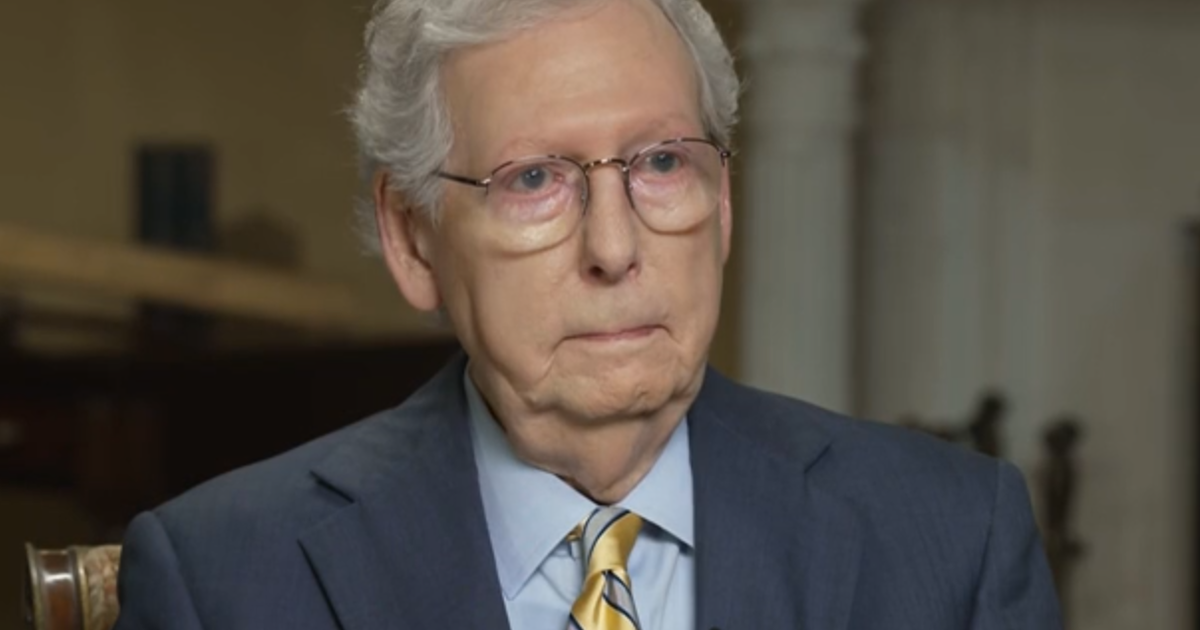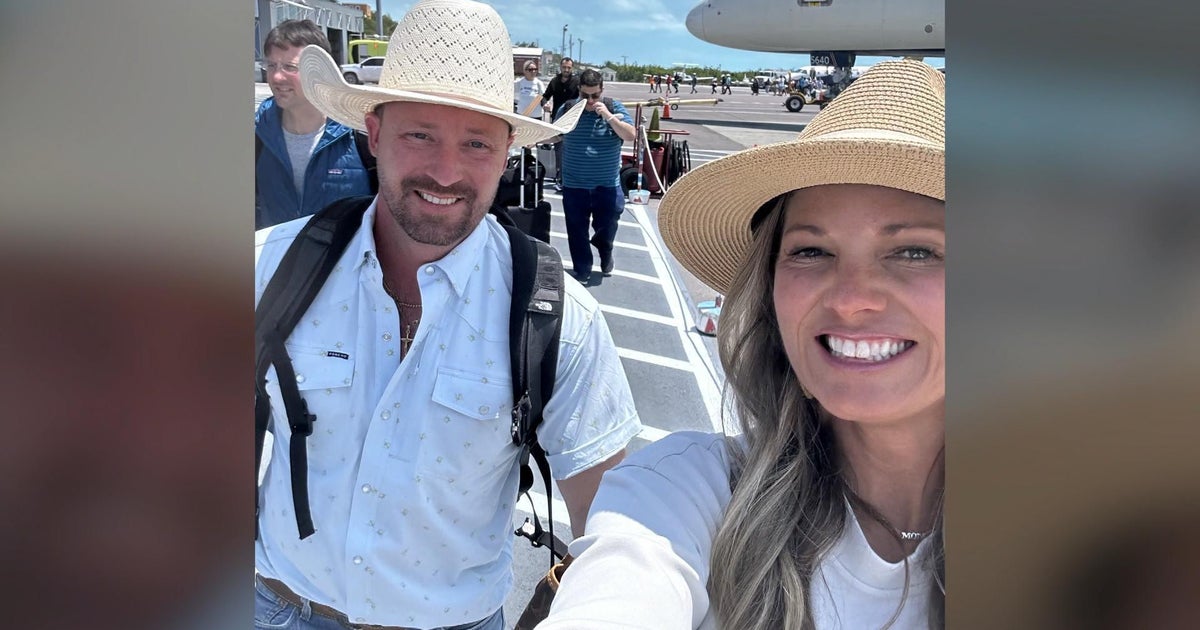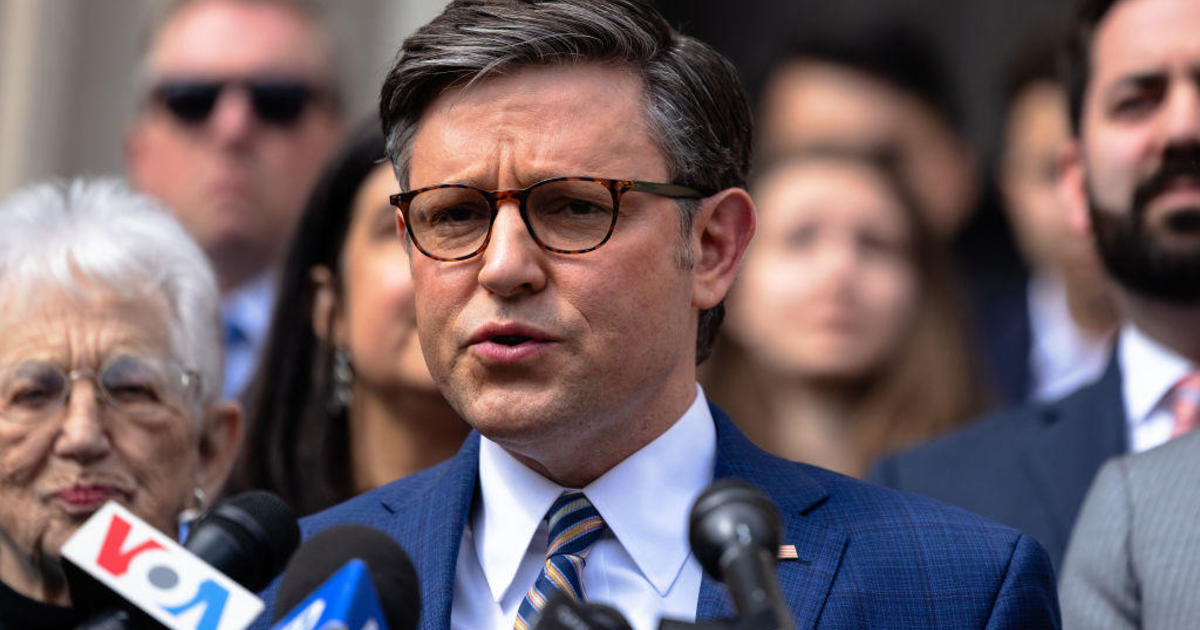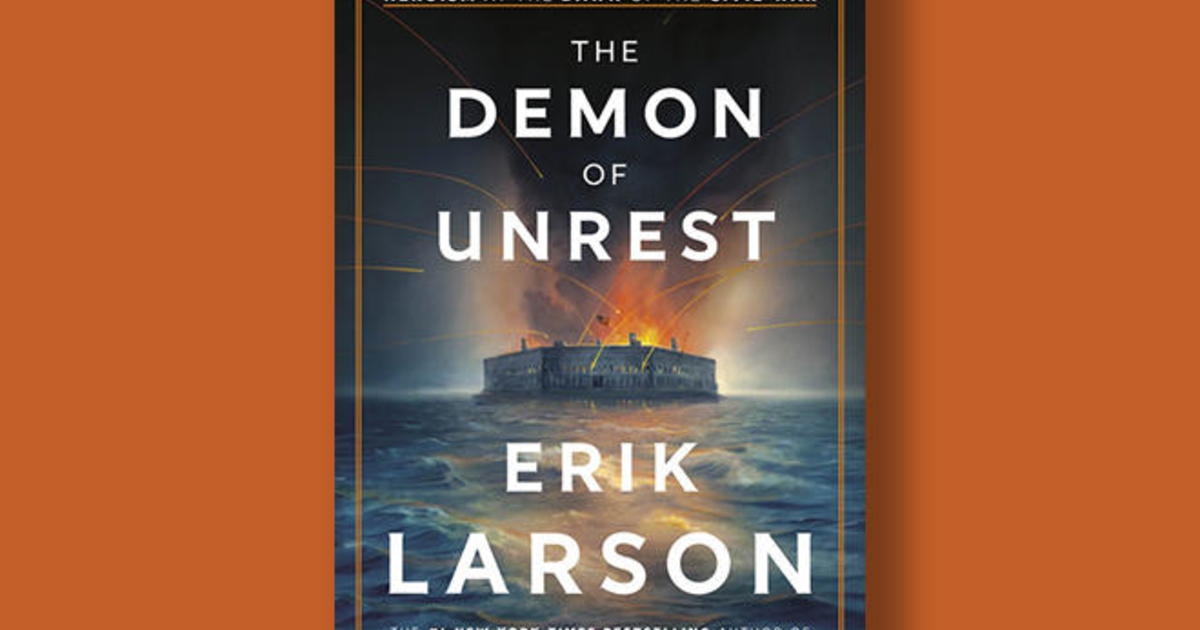Transcript: Robert O'Brien on "Face the Nation," December 8, 2019
The following is a transcript of an interview with National Security Adviser Robert O'Brien that aired Sunday, December 8, 2019, on "Face the Nation."
MARGARET BRENNAN: And we're back with White House National Security Adviser Robert O'Brien. Good morning to you, Mr. Ambassador.
NATIONAL SECURITY ADVISER ROBERT O'BRIEN: Good morning, MARGARET.
MARGARET BRENNAN: We saw overnight North Korea conduct what it called 'a very important test'. In your view, are they preparing to restart nuclear tests?
O'BRIEN: I hope not. That would be a mistake on the part of North Korea. When we came into office, the- the president was faced with a very difficult situation in North Korea. President Obama told him it was the most dangerous problem he would face in the world through a combination of- of tough sanctions and- and a military show of forces. We were able to convince Kim Jong Un to- to come to a- a summit. At that summit, Kim Jong Un promised to denuclearize North Korea. And we expect him to live up to the promise he made at the summit in Singapore. And- and we hope he'll do so.
MARGARET BRENNAN: Well, his ambassador to the U.N. said yesterday, 'denuclearization is already gone out of the negotiating table'. The president seemed to nod to that in a tweet this morning. With this test and that statement, it seems an explicit recognition here that on their end, diplomacy is dead. What's the U.S. going to do if they restart tests?
O'BRIEN: Well, I- I'd be pretty nervous if I was that ambassador, because Kim Jong Un has said publicly that he will denuclearize North Korean penin- the penin- Korean peninsula. For a North Korean ambassador to take a contrary position to the- to his leader, I think in that circumstance, is a- is a pretty dangerous thing for him to do. Look, we'll--
MARGARET BRENNAN: North Korean diplomats don't usually freelance. You know that.
O'BRIEN: I know- I- well, they- they- it doesn't end well for them if they do. So I- I'm a little surprised by that comment by the- the U.N. ambassador. We'll have to see what happens. We're- we're continuing with our negotiations, Steve Biegun is going down to the region soon and- and we'll- we'll- we'll see what happens. But we have plenty of tools in the toolkit. If- if North Korea takes a different path than the one it's promised its people, the people of South Korea, the United States and the world- Kim Jong Un said that he is going to denuclearize the Korean Peninsula- if he does not do that, then we'll take that into account. And- and we've got plenty of tools in the toolkit.
MARGARET BRENNAN: Well, you've got time running out, though, with this end of year deadline Kim Jong Un has set. Do you expect to have the U.S. and North Korea meet? Do you expect President Trump to speak to Kim Jong Un?
O'BRIEN: Well, we'll- we'll- we'll see. We'd like to have continued negotiations. We were in Stockholm not too long ago for negotiations with the North Korean team, and we'd like to continue those negotiations. And- and look, we'd like to see this end up in a peaceful resolution and a- a resolution that- that is good for the people of North Korea. They could be a great country. They could have a- a tremendous economic powerhouse in North Korea instead of- of starving and- and being poor. So they've got to make a choice. And- and we hope they make the right choice.
MARGARET BRENNAN: I want to ask you about something here at home. We saw a Saudi military officer shoot dead three Americans, wound eight, at a Pensacola base. Was the shooter acting alone? Is this a terrorist attack?
O'BRIEN: So we don't know yet if he was acting alone. The FBI is investigating and they- they're- they've been interviewing, interrogating other Saudi students. Look, to me, it appears to be a terrorist attack. The FBI will have to get into the- I- I don't want to prejudge the investigation, but it appears that this may be someone that was radicalized, whether it was here or, you know, it's- it's unclear if he's got any ties to any other organizations—
MARGARET BRENNAN: What do you mean appears—
O'BRIEN: --but it doesn't look good.
MARGARET BRENNAN: --to be? Based on what? Obviously, you're seeing intelligence that- that we don't know about. You have--
O'BRIEN: Well I—
MARGARET BRENNAN: --credible intelligence that indicates that this might be part of a broader plot?
O'BRIEN: I- I- I don't see anything that there- that there's a broader plot. I- I'm watching the same things that you're watching and- and- and the public reports. And the- this is a guy who- who may very well have- have said some things on Twitter that suggest he was radicalized. He went out and- and killed a number of- of Americans. So, my point is it looks like terrorism. We'll have to see what the FBI investigation shows, what his motivations were. The Saudis have promised full cooperation with the investigation. We're going to take them at their word. And- and the FBI is- is very competent doing these things. They'll get to the bottom of it, and we'll have a full report. But I'm- my point is, it looks from what we're seeing in- in the public reports that this looks like something that's terrorism or akin to terrorism.
MARGARET BRENNAN: Yesterday, there was a prisoner exchange with Iran. It's significant. First time Trump administration has got an American back from Iran. Xiyue Wang was the Princeton scholar released and the U.S. also released an Iranian scientist. That's great for his family. They have great joy. But there are at least four other Americans, and I know you know this well, who are still imprisoned in Iran. Why not make this part of a package deal?
O'BRIEN: Well, what- what you find out in the hostage business, MARGARET- and I did this for- for several years and we were able to- to- President Trump's brought back more wrongfully detained Americans that are hostages than any president in my lifetime. And he's done it without paying concessions, without the pallets of cash, because we want to deter folks from taking hostages again in the future. But what you do is you take the hostages and you take the detainees as- as you can get them. We would love to have all the Iranian detainees back. I- I pressed very hard on the Iranians for a year and a half to enter into a consular dialogue, to meet with us, to talk about how we could get all of them home. And- and we're continuing to do that and we want to see every one of those Americans home. I know each of the family members say these are great people, they're great Americans and- and they love their family members. We- we had a great day yesterday for- for the Wang family.
MARGARET BRENNAN: Yeah.
O'BRIEN: Has- Xi Shou has a- has a young wife, he's got a young son who hasn't seen for three years because the- the Iranians wrongfully detained him, accused him of being a spy. He wasn't. He was a young scholar coming to study their language and study their history, and they threw him in jail instead. We got a great deal out of- out of this. They wanted a- an Iranian back who, you can go to the DOJ for details on this, but he was going to court next week. And- and we felt there was an opportunity here to- to get- get someone home, and we did. And we--
MARGARET BRENNAN: You said--
O'BRIEN: --took the advantage of that opportunity.
MARGARET BRENNAN: You say great deal. Does this provide an opening for direct talks with Iran?
O'BRIEN: Look, I hope so. The president has offered to talk with the Ayatollah and--
MARGARET BRENNAN: But no promise of that? That was not a condition for this?
O'BRIEN: Well, that was--
MARGARET BRENNAN: This is not a precondition to talk?
O'BRIEN: No. Look, we- we've had a maximum pressure campaign on Iran. I- I think that maximum pressure campaign had an impact and- and- and- and was in part responsible for this release. The president has offered to talk to the Iranians without preconditions about a whole range of issues.
MARGARET BRENNAN: Okay.
O'BRIEN: We'd like to sit down and talk to them. But the sanctions and the maximum pressure are not going to be let up until Iran abandons its nuclear program and abandons its malign activities in the region. In the meantime, we'd love to sit down with him and talk about the other detainees. We want to get every single American home--
MARGARET BRENNAN: Yeah.
O'BRIEN: --and there's there's no one more committed to bringing Americans home than President Trump, and I- I think his record shows that.
MARGARET BRENNAN: All right. Ambassador O'Brien, thank you very much for joining us. We'll be back with much more on FACE THE NATION



